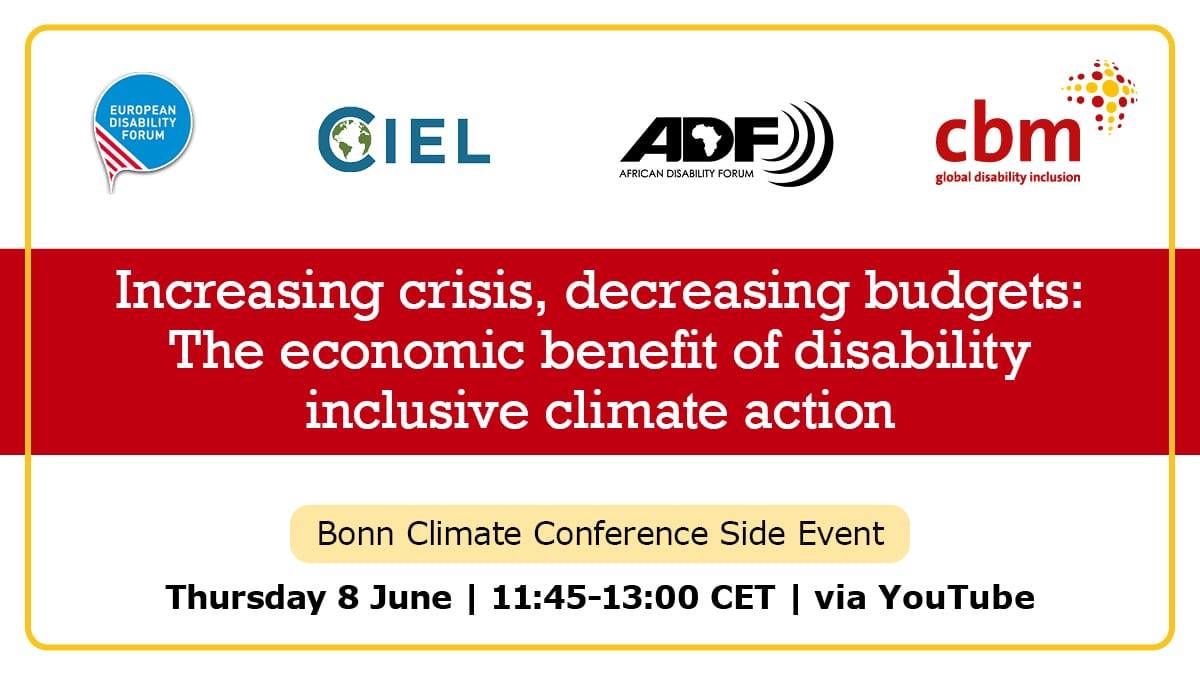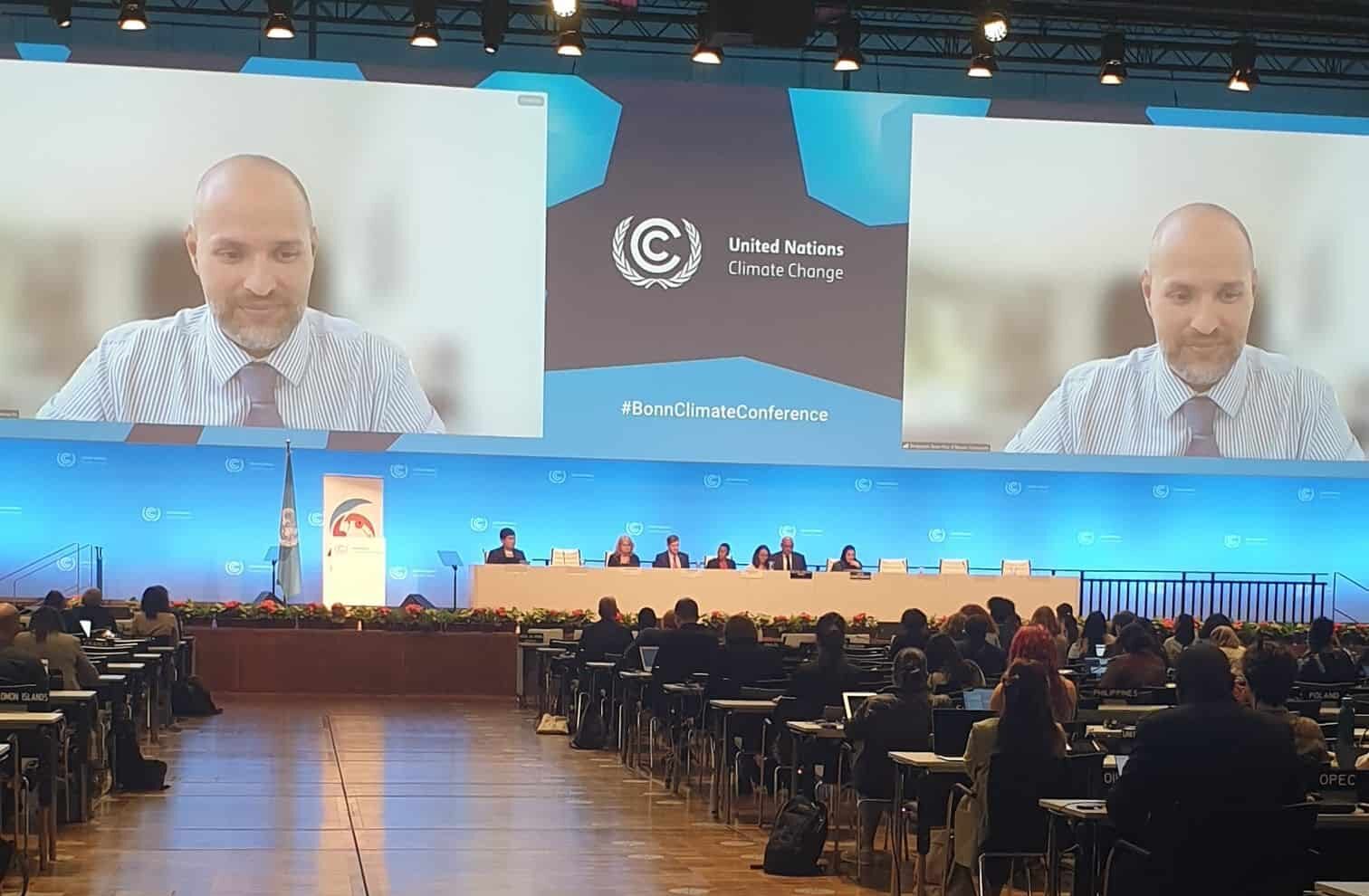The Bonn Climate Conference, also known as SB58, took place 5-15 June 2023. This annual conference is a crucial step for stakeholders to build on outcomes from the previous COP summit, and prepare decisions for adoption at the next COP summit. Our Engagement Advisor Dr Gurpreet Kaur was there and shared daily vlogs – watch them below – in which she shared insights into key topics including the global stocktake, loss and damage, just transition, mitigation and adaptation efforts, and ACE.
Public engagement and participation are crucial elements in tackling and building resilience to climate change, and need to be prioritised. An engaged public drives political and business will on climate, and talking to people and communities can create effective collaborative solutions. Governments engaging their citizens is an obligation under Article 12 of the Paris Agreement (known as Action for Climate Empowerment or ACE). As a report we launched at COP27 with global law firm DLA Piper established, states are also legally obliged to implement many of the elements of ACE under international, regional and national laws.
Daily vlogs from Bonn
Day 1 – What is the Bonn Climate Conference? How does it fit into the UN climate negotiations process? What are the hot topics that will be discussed?
Day 2 – What is the global stocktake and why is it so important?
Day 3 – Dr Gurpreet Kaur joins us on day 3 of SB58 where the first Joint Contact Group meeting for the global stocktake went ahead.
Day 4 – The links between disability and climate action are poorly understood – Gurpreet moderated a panel on this important topic and following the event, spoke with panelists Mark Barrell from CBM UK and Gordon Rattray from European Disability Forum.
Day 5 – What is Action for Climate Empowerment (ACE)? And why does it matter – especially alongside the global stocktake? Also, see our report below on governments’ legal obligations around ACE.
Day 5 – What does Action for Climate Empowerment (ACE) need to succeed?
Our Head of Engagement, Deepayan Basu Ray, reported back to the Bonn plenary on ACE monitoring and reporting discussions, reinforcing that we need a comprehensive national strategy in each country so that we can align monitoring and reporting initiatives.
Gurpreet explains more in this short video.
Day 6 – the 2nd Joint Contact Group meeting for the global stocktake and the final roundtable focusing on integrated and holistic approaches for the GST took place. Gurpreet explains a bit more about what this means, why it matters and the role of intersectionality in this short video.
Day 7 – Gurpreet delves more into a topic that isn’t well understood – the connection between health, climate change and people.
Day 8 – Gurpreet highlights the power of public participation and engagement shown through the calls for equity in the closing plenary for the global stocktake and talks more on SRHR of women and the role of climate change.
Day 9 – What is feminist climate justice? and why is it important?
Day 10 – After nearly 2 weeks, Gurpreet wraps up on her final day at the Bonn Climate Conference SB58.
She shares an update on the global stocktake, reflects on the last two weeks and highlights the importance of public engagement & participation in the context of climate negotiations.
Recap: ACE at the Bonn conference
Two days in Bonn (8 and 9 June) were dedicated to Action for Climate Empowerment (ACE), which comes under Article 12 of the Paris Agreement and Article 6 of the UNFCCC.
While ACE has six components—education, training, public awareness, public participation, public access to information, and international cooperation on these elements—the focus was almost exclusively on education. We would have liked to see more emphasis on other ACE areas, in particular public participation.
The ACE dialogues held on those two days focussed on the progress of the implementation of the Glasgow work programme: monitoring, evaluation and reporting (MER), policy coherence, coordinated action, and tools and support.
Climate Outreach was successful in putting forth recommendations for monitoring, evaluation and reporting of ACE activities. In particular, during a plenary session our Head of Engagement at the time, Deepayan Basu Ray, made an important intervention on the need for comprehensive national frameworks in each country for monitoring, evaluation and reporting.
Reports & guides
Sign up to our newsletter
Thank you for signing up to our newsletter
You should receive a welcome email shortly.
If you do not receive it, please check your spam folder, and mark as 'Not Spam' so our future newsletters go straight to your inbox.


